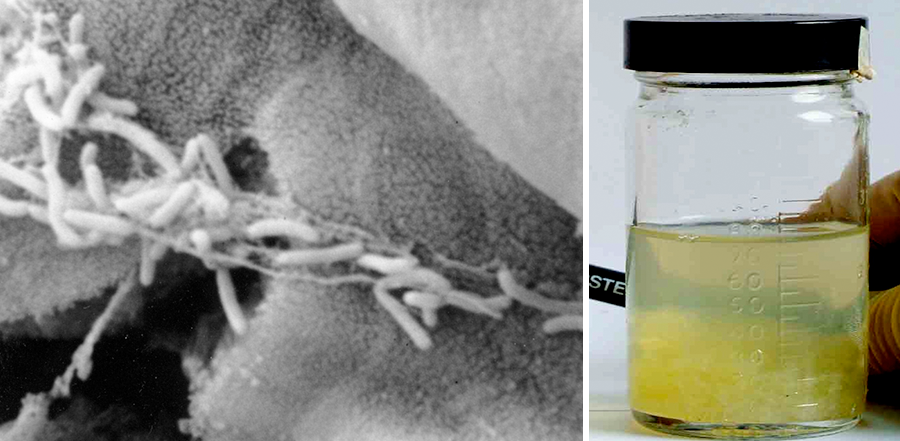The Andrew Camilli Lab
The long-term goals of my laboratory are to increase understanding of the life cycles of mucosal pathogens, to develop ways to treat or prevent infections by them, and to help train the next generation of biomedical researchers and teachers. We use Vibrio cholerae as a model pathogen in our research. V. cholerae is a motile, waterborne bacterium that maintains a substantial environmental reservoir, and causes endemic and epidemic cholera in many parts of the world.
Our primary research focus is identifying V. cholerae genes and their protein products that are expressed during the infection process and during transmission, and then elucidating their regulation and function. We have chosen this focus because bacteria generally express genes only when and where needed and thus do not readily reveal their pathogenic armament outside of the infected host. Detailed knowledge of the behavior of pathogens and the antigens they express during infection and transmission are crucial to development of more effective vaccines, antimicrobials and diagnostics. In the course of our studies, we have created a number of genetic tools, some of which are now used widely in the research community.
Our studies have revealed a number of important findings concerning the life cycle of V. cholerae and ways to prevent infection. These include the discoveries that V. cholerae exits humans in secretory diarrhea (see figure) in a heightened state of infectivity, but that bacteriophage, commonly present in cholera diarrhea, can antagonize transmission and subsequent infection. We hypothesize that the hyperinfectious state of V. cholerae aids in transmission and therefore the rapid spread of cholera during outbreaks. In contrast, we propose that bacteriophages function to moderate infections and to reduce transmission. We are currently developing phage cocktails for oral ingestion to prevent cholera infections in people at high risk.
Figure 1. The left panel shows Vibrio cholerae attached to intestinal villi; the right panel shows the typical secretory diarrhea shed by cholera patients, a ready source of V. cholerae to further transmission during epidemics.
We are engaged in the development of novel types of vaccines and phage therapies to prevent cholera. In addition, we are studying predatory bacteria of the Bdellovibrio genus. Bdellovibrio species are small, motile bacteria that are obligate predators of other bacteria including V. cholerae. By revealing mechanisms of Bdellovibrio predation, we hope to contribute to the future development of Bdellovibrio-based strategies to prevent or treat cholera and other bacterial infections.

